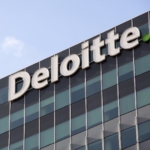
Despite the notable progress made in reducing inflation and improving macroeconomic stability, Deloitte Ghana has expressed worry about the high average lending rates, compared to other markets within the sub-region.
According to the professional services firm, the high lending rates of about 24% are negatively impacting the overall cost of doing business in Ghana.
In its analysis of the 2026 Budget, it said there are structural issues that, when solved, will sustainably improve the macro-economic fundamentals.
“We note that there are structural issues that, when solved, will sustainably improve the macro-economic fundamentals. This will significantly lower lending risk and lead to sustainably lower lending rates for businesses. We recommend close coordination between monetary and fiscal policy design and implementation to address these structural bottlenecks that will eventually reduce the cost of borrowing”.
Deloitte again said the sustained decrease in inflation over the past 12 months suggests that inflation may fall below the medium-term benchmark target of 8%. “We note that the impressive improvement in food and non-food inflation in 2025 was closely linked to strong Ghana cedi performance and easing imported inflation pressures”.

To consolidate these gains, it wants the Agriculture for Economic Transformation agenda to be accelerated to address structural bottlenecks in domestic food production and reduce the economy’s exposure to imported food price shocks.
It, however, warned that the emerging global risks, including geopolitical tensions in Europe, the Middle East, and Asia, as well as ongoing trade realignments, still pose potential disruptive risks to commodity prices, global inflation, and external financing conditions.
It therefore urged the government to continue to build external buffers and deploy targeted contingency measures to mitigate spillovers that could undermine domestic price stability.

“Specifically, the government should consider implementing measures that could mitigate potential downside risks resulting from changes in the global market price of essential commodities like gold, oil and cocoa”, it added.
Overall, Deloitte pointed out that with expected inflows from multilateral partners, improved fiscal consolidation, and ongoing monetary restraint, it anticipates that the current stability of the Ghana cedi will be broadly sustained in 2026. However, maintaining this trajectory will require continued vigilance, careful management of external vulnerabilities, and strong implementation of structural reforms to support long-term macroeconomic resilience.